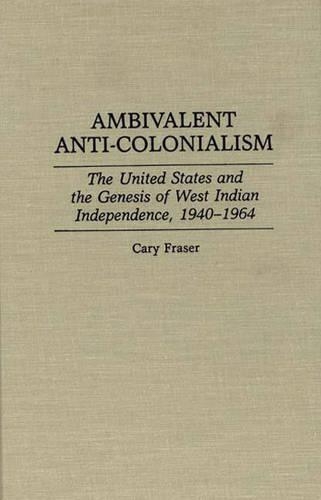
Ambivalent Anti-Colonialism: The United States and the Genesis of West Indian Independence, 1940-1964
(Hardback)
Publishing Details
Ambivalent Anti-Colonialism: The United States and the Genesis of West Indian Independence, 1940-1964
By (Author) Cary Fraser
Bloomsbury Publishing PLC
Praeger Publishers Inc
14th March 1994
United States
Classifications
Tertiary Education
Non Fiction
National liberation and independence
International relations
Central / national / federal government policies
Ethnic studies / Ethnicity
Historiography
327.730729
Physical Properties
Hardback
248
Width 156mm, Height 235mm
510g
Description
Until recently, historians have defined the Commonwealth Caribbean territories by their relationship with Britian and have attributed little importance to American relations with these territories. Fraser provides a reinterpretation of U.S. policy toward the West Indies since 1940. He establishes links between Afro-West Indian groups and African Americans who successfully influenced both American and British policy in the West Indies. Thus, he explores a little-understood and little-studied aspect of American policy toward Britain's disengagement from empire after 1945 and the way decolonization in the Caribbean helped to shape the pattern and strategy of the Anglo-American relationship from Roosevelt to Kennedy. The book will force a rethinking of American policy toward the West Indies since 1940, the impact of race on American foreign policy, and the historiography of inter-American relations.
Reviews
Fraser presents a convincing case for the vital role of US policy in shaing historical events surrounding the British West Indies--he uses an approach that fully accounts for the interplay of interntional factors that ultimately mold national events. Graduate; faculty.-Choice
"Fraser presents a convincing case for the vital role of US policy in shaing historical events surrounding the British West Indies--he uses an approach that fully accounts for the interplay of interntional factors that ultimately mold national events. Graduate; faculty."-Choice
Author Bio
CARY FRASER is Visiting Fellow at the Princeton Center for International Studies and has written articles on American policy toward decolonization.
